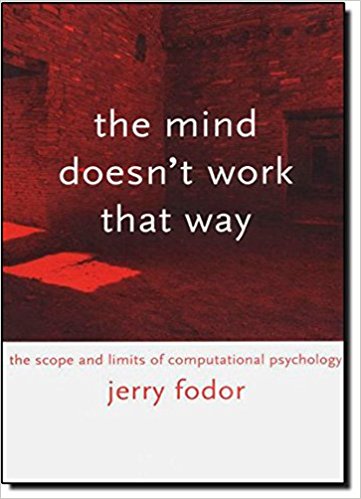We hope you love the books people recommend! Just so you know, The CEO Library may collect a share of sales or other compensation from the links on this page.
This book has 1 recommendation
Nassim Nicholas Taleb (Flaneur)
This critique of the computational theory of mind and the pan-adaptionist tradition is clearly so honest that it goes after the ideas promoted by Fodor's own 1983 watershed book "The Modularity of Mind". In brief the essay is an attack on massive modularity by saying that there are things after all that escape the programming (encapsulation and opacity are key: how can we talk about something OPAQUE? We know nothing about a few critical things...).
Granted the book is horribly written (that is Fodor's charm after all) but his argumentation is so ferocious that he ends up loud & clear.
The man is critical of his own ideas, and of the current in thought that he he helped create --one may use Fodor-1 against Fodor-2. Perhaps persons I hold in highest respect are those who go after their own ideas!
Bravo Fodor. Even if I do not agree I can't help admiring the man.
Amazon description
In this engaging book, Jerry Fodor argues against the widely held view that mental processes are largely computations, that the architecture of cognition is massively modular, and that the explanation of our innate mental structure is basically Darwinian. Although Fodor has praised the computational theory of mind as the best theory of cognition that we have got, he considers it to be only a fragment of the truth. In fact, he claims, cognitive scientists do not really know much yet about how the mind works (the book's title refers to Steve Pinker's How the Mind Works).
Fodor's primary aim is to explore the relationship among computational and modular theories of mind, nativism, and evolutionary psychology. Along the way, he explains how Chomsky's version of nativism differs from that of the widely received New Synthesis approach. He concludes that although we have no grounds to suppose that most of the mind is modular, we have no idea how nonmodular cognition could work. Thus, according to Fodor, cognitive science has hardly gotten started.
Get this book on Amazon | Barnes & Noble | Book Depository | iBooks




